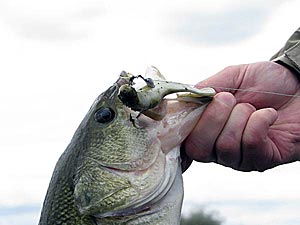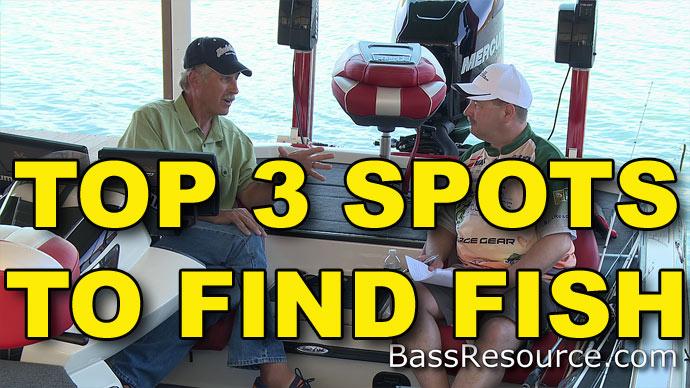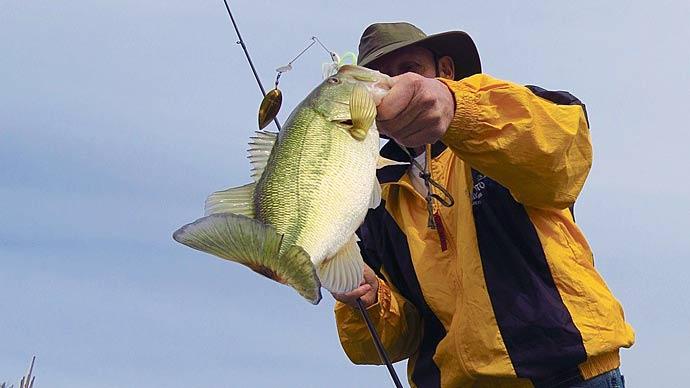
Bass fishing on big waters seems to get the most attention these days. However, those anglers who spend time fishing in ponds or small private lakes should not be ignored. After all, nearly every fisherman learned to bass fish by stalking small, fish-filled potholes scattered around the countryside.
If you’re a pond angler, you must realize that the techniques and strategies for pond fishing differ somewhat from the wisdom commonly shared by lake fishermen. Bass are bass, but the pond environment is considerably different and thus requires different tactics.
Pond bass are limited in where they can go and aren’t accustomed to daily contact with people. Any abrupt disturbance puts them on guard and will cause them to shut down from feeding activity. Vibrations, including the plodding of anglers along the shore, are reverberated into the water, and the bass will sense it immediately.
That’s why I approach a pond in a sneaky manner. When fishing with others, I speak softly and avoid making noise on the bank. I rarely walk directly along the shoreline. Once I decide to move elsewhere, I walk at least 50 feet directly away from the bank, turn, walk parallel with the pond, then turn and walk quietly toward the next fishing location. If you do that, you’re less likely to spook fish along the shore.
I also suggest you give ponds a break and not fish them more than once a week. Pond bass wise up quickly, and it takes a few days for them to settle down after they’ve been fished hard.
If you’d rather fish a bigger pond with a boat, I’d recommend using a stealthy craft. I’ve had good success while filming television shows from a Hobie Cat Outback. It is a shallow draft boat that can be pedaled or run with a trolling motor. If you prefer a johnboat, oil the oar locks and place carpet on the floor to deaden any sounds of tackle or gear scraping its bottom.
One of the advantages of pond fishing is that fish are easier to locate. I tend to fish each spot thoroughly before I move because I know the fish aren’t far away. If they don’t hit my first choice of lures, I’ll try a variety of baits until I’m convinced it’s time to move.
Another significant difference between ponds and reservoirs is the size of the lures I fish. I prefer smaller baits that make less disturbance when they land in the later or move through it. Instead of Texas-rigging a worm, I may split-shot it. Instead of casting a ½-ounce spinnerbait, I may throw one considerably lighter.
I once did a show with a young lad on a pond that held giant bass. We used traditional bass lures, but the biggest fish we caught was about 4 pounds. At the end of the day, I switched to a Beetle Spin and hooked an 8-pounder and a 9-pounder. The smaller baits made a difference, even on the bigger fish.
I’ve also found pond fishing best on windy or rainy days. The chop on the water helps disguise your presence, and run-off from the rain will stain the water and make the fish more aggressive. In addition, if a pond has a drain or ditch running into it, you can expect to find active bass hanging around where that fresh water comes into the pond.
Finally, don’t be afraid to keep a few fish. I would never take out the big bass, but removing smaller bass and panfish reduces competition for food. Each body of water has a carrying capacity, and smaller ponds tend to get overpopulated easily if some fish aren’t removed. Do it judiciously, and you’ll enjoy good fishing for years to come.
You can find more articles, quick tips, and much more at HankParker.com.




